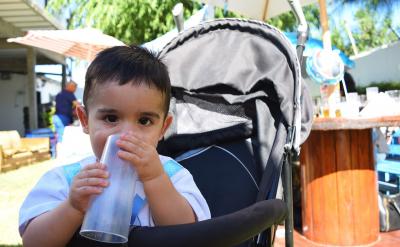
篇1:中考英语核心知识点精讲
1 修饰比较级时常见的错误
1. more不可修饰比较级,但much可以用来加强比较级,意为的多,更
He looks more younger than I. ()
He looks much younger than I. ( )
2. 比较的对象或范围出现错误。
1)The weather of Beijing is colder than Shanghai. ()
(比较的对象应该是上海的天气,而不是上海)
The weather of Beijing is colder than that of Shanghai. ()
2)China is larger than any country in Asia. ()(出现了逻辑上的错误: 中国就是亚洲国家,应当排除在外。)
China is larger than any country in Africa. () 中国比非洲的任何国家都大。
China is larger than any other country in Asia. () 中国比亚洲的任何(其他的)国家都大。
特别提示
Than后面接代词时,一般要用主格,但在口语中也可使用宾格。如果than后是一个句子,则不可使用宾格。
He works harder than me.
He works harder than I do.
2 形容词的比较级
用于两者比较,表示比更:
A+系动词+形容词比较级+than+ B,e.g. I am two years older than my little sister.
A+谓语动词+副词比较级+than+ B:e.g. She gets to school earlier than the other students.
比较级+and+比较级,这种结构表示事物本身程度的逐渐增长,意为越来越。
eg. In spring the days are getting longer and longer.
the+比较级the+比较级,表示一方的程度随着另一方的程度的增长而增长,表示越,越。
eg. The mort you practice using English,the better youll learn it 你英语练得越多,就会学得越好。
A十动词十the+比较级+of短语(比较范围),这种结构表示两者中更的那一个。当比较双方只出现一方(没有than及其后面的部分),且句中含有of the two时,比较级前要加the.
eg. Penny is the taller of the two girls.
The larger of the two houses belongs to Mr. Black.
表示两者程度不同的其他方式
可用more than(多于), not more than(不多于), less than(少于), not less than(不少于), less+形容词+ than(不如)等。
We havent got more than one hour left right now.
It is less cold today than it was yesterday.
not+比较级 +than与no+比较级+than 这两个结构表达的意思完全不同:
前者往往表示一方不比另一方,后者往往表示前者和后者一样都不;
修饰说明数量时,前者表示最多,不比多,后者表示仅仅,带有感情色彩。
I am not taller than you. 我不比你高。
I am no taller than you. 我和你一样高。
My French is not better than yours.
My French is no better than yours.
She is not more than seven years old.
She is no more than seven years old.
3 形容词的最高级
最高级是表示在三者或更多者中程度最高的比较方式
the+ 形容词最高级+名词+表示范围的短语或从句
Jack is the tallest student in his class.
He is the fastest runner of the three boys.
This is the most boring book Ive ever read.
one of the+形容词最高级+名词复数+表示范围的短语或从句
China is one of the largest countries in the world.
用法比较:介词in和of引导的短语说明比较的范围
如果在一定的地域空间内进行比较用in; 如果在同一类事物范围内进行比较用of.
China is the largest country in Asia.
China is the largest one of all the Asian countries.
运用比较级表达最高级的概念: 比较级+than any other+名词单数,比较级+than the other+名词复数或比较级+than the rest of +the+名词复数
Julia is taller than any other girl in her class.
= Julia is taller than the other girls in her class. = Julia is taller than the rest of the girls in her class.
4 表示移动方向的介词
(1)to表示向,往到。
如:
He will drive to Nanjing. 他将开车去南京。
(2) from表示自,从,来自。
如:
Where are you from 你是哪儿人
I am from Jiangsu Province. 我是江苏人。
(3)up表示向上,往上。
如:
Mr. Smith used a lift to go up and down. 史密斯先生乘电梯上下。
( 4)down表示向下,沿着往下。
如:
Go down the street then youll find the shop. 沿着这条街走,你就会发现那个商店。
(5)round表示环绕,围绕
如:
The students are running round the playground. 学生们正绕着操场跑步。
(6)across表示横过,穿过,跨过。
如:
A boy walked across the park just now. 一个男孩刚才穿过公园。
(7)through表示通过,穿过(空间)。
如:
The river ran through the city. 那条河从城中流过。
(8)over表示越过,从上边过去。
如:
There is a bridge over the river. 河上有座桥。
5 相似介词组辨析
1)貌似相同的in front of与in the front of
in front of在......的前面,指从外部看来一物在另一物的前面。如:
Theres a big tree in front of the building.
in the front of在......的前面,指从内部看来一物在另一物的前部。
如:
The driver sits in the front of the car.
2)貌似相同的in time与on time
in time意思是及时,指在时间上有提前、刚好的意思,表示正赶上时候或恰在需要的时候,作表语时常与for sth.或to do sth. 连用。如:
Were just in time to catch the bus.
on time意思是按时、准时,通常指有时间限制,以规定的时间为界,在规定时间内即为按时。
如:We should get to school on time.
The train arrived on time.
3)貌似相同的beside与besides
beside表示位置,意思是在......的旁边,与by,at同意。
如:
There is a big tree beside the house.
besides意思是除了......以外,还......与except,but同义。如:
The girl is studying Japanese besides English.
6 but:但是,可是,而
He is old, but he looks very young.
他老了,但他看起来很年轻。
Li Li likes violin but doesnt like piano.
李莉喜欢小提琴,(但是)不喜欢钢琴。
(but 后面省略了主语Li Li,因为与前面的主语成分相同)
Mary likes violin, but Tom doesnt.
玛丽喜欢小提琴,而汤姆不喜欢。
(doesnt后面省略了like violin,因为与前面的成分相同)
He isnt a teacher but a doctor.
他不是(一个)老师,而是医生。
They came here not for money but for the life.
他们到这儿来,不是要钱,而是要命。
注意:
but所连接的句子,句中如果某些成分与前面相同,则可以省略。
7 or:或,或者,否则
Is Li Ming from Beijing or from Shanghai.
李明是北京人还是上海人呢?
1.基本用法
or表示~或的意思,使用于两者之中选择一个的时候。
Would you like coffee or tea?
你喜欢咖啡还是茶?
Tom or I am right.我或者汤姆是对的。
Li Ming or his classmates are cleaning the room.
李明或者是他的同班同学在打扫房间。
注意:
A or B作主语时,谓语动词随or后面的词(B)而定,因此例子中的谓语动词服从I,用am。
2.特别用法
句型:祈使句, or=If you dont, youll
同and一样,or在祈使句中的用法,译成请,否则,有转折的意思。
Hurry up,or youll miss the bus.
快点吧,否则你就会误了公共汽车。
=If you dont hurry up,youll miss the bus.
如果你不快点,你就会误了这班车。
Study hard,or youll fail in the exam.
好好学吧,否则你考试就会不及格。
=If you dont study hard,youll fail in the exam.
如果你不努力学习,你考试就会不及格。
注意:
or疑问句的读法or前面的部分用升调,后面的部分用降调。
8 副词和动词
如果主要动词前有两个助动词,修饰整个句子的副词(特别是频度及肯定副词)要放在两个助动词之间,而修饰主要动词的副词(特别是方式副词)应放在这个动词的前面:
a) Tigers have often been discovered in this area.
You can never have seen such a beautiful place.
He will probably be made President of the Company.
He has surely been punished for his offence.
He may,unfortunately,be killed by robbers.
b) This decision will be publicly announced.
I would have carefully done it,if it had been useful.
He must have seriously considered this matter.
要使副词(短语)尽可能靠近它修饰的动词:
We went to deserted village almost ten miles away from the capital yesterday.(不好)
We went yesterday tocapital.(较好)
Yesterday a guest who had come from a distant country called on me.(不好)
A guestme yesterday.(较好)
Immediately,he told me to leave his house.(不好)
He told me to leave his house immediately.(较好)
9 冠词应用考点
在有些词组中,有冠词和无冠词意思不同,请注意区别:
1.有些个体名词school,college,prison, hospital,bed等词与动词或介词连用时,有无冠词表示不同含义
例:go to hospital去医院看病
go to the hospital去医院 (并不是去看病,而是有其他目的)
in hospital (生病)住院
in the hospital 在医院里
at table进餐
at the table在桌子旁
by sea乘船
by the sea在海边
in front of 在前面
in the front of 在范围内的前部
2.两个形容词都有冠词,表示两个不同东西。
例:He raises a black and a white cat.他养了一只黑猫和一只白猫。
3.如后一个形容词无冠词,则指一物。
例:He raises a black and white cat.他养了一只花猫。
a teacher and writer一位教师兼作家(一个人)
a teacher and a writer一位教师和一位作家(两个人)
10 辨析基数词序数词运用
对数词的考查不在单纯地停留在基数词或序数词的构成与用法上了,更多地将基数词与序数词同时用于一道题中,考查我们如何正确地判定句子中什么地方用基数词,什么地方用序数词。这就要求我们熟练地掌握对基数词与序数词的构成与用法。下面就的考题来说明怎样做好这类考题。
【典型考例1】
(四川凉山州)There are()people in Dales family. They live on the()floor.
A. five; nine
B. fifth; nine
C. five; ninth
D. fifth; ninth
【析】正确答案:C。
句意:在戴尔家里有5口人,他们一家居住在九楼。第一句指的是名词的数量,故用基数词;而第二句居住在九楼,表示的是楼层的顺序,故用序数词。所以,本题的正确答案为C。
【典型考例2】
(湖北鄂州) Our country is nearly()years old. Well celebrate its()birthday on October 1, around the country.
A. seventy, seventy
B. seventy, seventieth
C. seventieth, seventy
D. seventieth, seventieth
【析】正确答案:B。
句意:我们的国家快70周岁了。我们将在10月1日在全国庆祝她的生日。第一句表示数量,在结合被修饰的名词为复数形式years可知,故70使用基数词seventy。第二句因为被修饰的名词birthday为单数形式,因此这里的70表示顺序,故用序数词seventieth。所以,本题的正确答案为B.
11 There be 句型的用法
与
1)基本结构:
肯定句式:be +done (及物动词的过去分词)
如果是不及物动词 + 相应的介词或副词
否定句式:be +not +done
疑问句式:be动词(情态动词)放句首
被动语态中的be为助动词,无意义。be可能是am , is , are也可能是was ,were或原形be。
注:被动语态的时态是由be的时态决定的,be是什么时态,全句就是什么时态,be后面的过去分词不变。
eg:
1.The song is liked by young people. (肯定句)
2.The song isnt liked by young people.(否定句)
3. Is the song liked by young people ?(一般疑问句)
4.Who is the song liked by ?=By whom is the song liked?(特殊疑问句)
各种时态的构成(动词以do为例):
一般现在时
动词的被动形式:am/is /are done
例句:He is asked to do this.
一般过去时
动词的被动形式:was/were done
例句:The story was told by her mother.
一般将来时
动词的被动形式:will /shall be done
Is/are going to
例句:The problem will be discussed tomorrow.
过去将来时
动词的被动形式:should/would be done
Was/were are going to
例句:He said the trees would be planted soon.
现在进行时
动词的被动形式:am/is/are being done
例句:The novel is being written.
过去进行时
动词的被动形式:was/were being done
例句:At that time the desk was being made.
现在完成时
动词的被动形式:has/have been done
例句:The house has been built.
过去完成时
动词的被动形式:had been done
例句:They said that their work had been finished.
含有情态动词的被动语态:情态动词+be+ done Your homework must be handed in today.
其它几种特殊句型:
It is said that ..
It is well known that .
It is reported that
例:
History is made by the people. (一般现在时)
The cars were made in Tianjin in 1995. (一般过去时)
The tree will be cut down next year.(一般将来时)
The room must be kept clean.(含有情态动词的被动语态)
The door is being opened.(现在进行时)
The film has been seen by me.(现在完成时)
注:不同时态的被动语态的差异主要体现在助动词be的变化上,同时助动词be还要在人称和数上与主语保持一致。
2)应用情况
行为的执行者不明确或不必说出来。
eg: A stranger was killed last night.
用于强调动作的承受者而不是执行者。
eg: The story is told everywhere in the city.
3)被动语态的用法
1. 一般现在时的被动语态构成:is / am / are + 及物动词的过去分词
Our classroom is cleaned everyday.
2. 一般过去时的被动语态构成:was / were + 及物动词的过去分词
A new shop was built last year.
3. 现在完成时的被动语态构成:has / have + been + 及物动词的过去分词
This book has been translated into many languages.
4. 一般将来时的被动语态构成:will+ be + 及物动词的过去分词
Many more trees will be planted next year.
5. 含有情态动词的被动语态构成:情态动词+ be + 及物动词的过去分词
Young trees must be watered often.
6. 现在进行时的被动语态构成:am / is / are + being + 及物动词的过去分词
Uncle Wang is mending my bike now. My bike is being repaired by Tomnow.
7. 不定式的被动语态:to + be + 及物动词的过去分词
There are two books to be read. There are twenty more trees tobe planted.
13 状语从句
时间状语从句最常考的是until,常常和非延续性动词组合。
其次是结合进行时考察when/while/as,再次是结合主将从现考察as soon as/whenever.
原因状语从句,主要考察since作为既然的意思。
目的状语从句,考察较少。
结果状语从句常常考察so...that与such...that的辨析,so+many/few/much/little+名词结构用用的是so而不是such是一个重要考点。
条件状语从句最常考的是unless,相当于ifnot,意为除非,如果不。其次结合主将从现考察if的用法
让步状语从句,主要考察句子的让步关系
引导让步状语从句的连词主要有以下这些:though, although,while, as; even if, even though; whether...or...; no matter+疑问词,疑问词-ever,一般翻译为尽管或即使,无论。
用法如下:
1、though, although表示虽然,纵然之意。这两个连词意思大致相同,在一般情况下可以互换使用。在口语中,though较常使用,although比though正式,二者都可与yet, still或never,the less连用,但不能与but连用。
例如:
Although/Though he is very old, (yet) he is quite strong. 他虽然年纪大了,身体还很健壮。
值得注意的是,although引导的让步状语从句位于主句之前的情况较多,though引导的让步状语从句可位于主句之前或主句之后。
2、as,though表示虽然但是,纵使之意。as引导的让步状语从句必须以部分倒装的形式出现,被倒装的部分可以是表语、状语或动词原形,though也可用于这样的结构中,但although不可以这样用。
例如:
Hard as/ though he works, he makes little progress. (=Though he works hard, he makes little progress.)尽管他学习很努力,但几乎没取得什么进步。
3、 even if, even though 表示即使,纵使之意,含有一种假设。 这两个复合连词的意思基本相同。它们常互换使用,但意义有细微差别。
even if 引导的让步从句含有强烈的假定性,可用来表示与事实相反的假设,但不能用来描述已经发生的事实。
而even though引导让步状语从句时,是以从句的内容为先决条件的,即说话人肯定了从句的事实,表示已经发生了的事。
例如:
Well make a trip even if/though the weather is bad. 即使天气不好,我们也要作一次旅行。
4、whether...or...表示不论是否,不管是还是之意。由这一个复合连词引导的让步状语从句旨在说明正反两方面的可能性都不会影响主句的意向或结果。
例如:
Youll have to attend the ceremony whether youre free or busy. 不管你忙不忙,都要参加这个典礼 。
5、no matter+疑问词或疑问词-ever的含义为都;不管都它们引导的让步状语从句可以互换。
例如:
No matter what happened, he would not mind. (=Whatever happened, he would not mind.)无论发生了什么,他都不会介意的。
但no matter+疑问词结构只能引导让步状语从句,而疑问词-ever还可以引导名词性从句。
例如:
Whatever (=No matter what) you say, I wont believe you. (Whatever 引导让步状语从句)无论你说什么,我都不会相信你。
Ill eat whatever (no matter what) you give me. (whatever引导宾语从句)你给我吃什么,我就吃什么。
14 基本句型结构
简单句:
只存在一个主谓关系的句子,即一个主语部分和一个谓语部分组成。
并列句:
当我们需要把几个意思连在一起时,可用标点符号或等立连词或连接副词把几个简单句连接成一个并列句。它们之间的关系是同等的。
复合句:
当一个句子由一个主句和一个从句构成时,这就是复合句。复合句的主语往往可以独立存在,从句则只作一个句子成分。
句型结构举例
S+V
1)Thestudentworksveryhard.
2)Sheapologizedtomeagain.
3)Theaccidenthappenedyesterdayevening.
SVP
4)ThisisanEnglish-Chinesedictionary.
5)Thedinnersmellsgood.
6)Hefellinlove.
7)Everythinglooksdifferent.
8)Heisgrowingtallandstrong.
9)Thetroubleisthattheyareshortofmoney.
10)Ourwellhasgonedry.
11)Hisfaceturnedred.
SVO
12)Whoknowstheanswer
13)Shesmiledherthanks.
14)Hehasrefusedtohelpthem.
15)Heenjoysreading.
16)Theyatewhatwasleftover.
17)HesaidGoodmorning.
18)Iwanttohaveacupoftea.
19)Headmitsthathewasmistaken.
SVOO
1)Sheorderedherselfanewdress.
2)Shecookedherhusbandadeliciousmeal.
3)Hebroughtyouadictionary.
4)Hedenieshernothing.
5)Ishowedhimmypictures.
6)Igavemycarawash.
7)Itoldhimthatthebuswaslate.
8)Heshowedmehowtorunthemachine.
SVOC
1)Theyappointedhimmanager.
2)Theypaintedthedoorgreen.
3)Thissetthemthinking.
4)Theyfoundthehousedeserted.
5)Whatmakeshimthinkso
6)Wesawhimout.
7)Heaskedmetocomebacksoon.
8)Isawthemgettingonthebus.
15写作技巧
1、审
审清题意,构建框架,明确体裁,掌握格式
文字信息;图画信息;题材、人称、时态、要点
2、抓
抓住要点,一 一对应。
列关键词,以词及点:用一两个单词或短语写出每个点的细节要点。
3、连
连词成句,变换句式
联词成句:用联词成句的方法将上述要点的词语扩展成句子。
4、集
集句成段,添连接词
主语和谓语
背景(适当增加时间、地点、条件等)
逻辑关系
开头与结尾
5、组
组段成篇
加主题句
注意上下文语篇衔接(适当使用过渡词、句)
完善结尾
6、抄
抄写规范,避免错误
定稿后应认真誊写,要求书写规范、正确、美观,并保持卷面整洁。
篇2:中考英语核心知识点精讲
『考题一』
首先不得不提的就是对于春晚的争议了,很多知道春晚已经成为了除夕不可或缺的节目之一,但是随着时代的发展,对于春晚的吐槽相信大家也不陌生,其实这很可能也是考题之一哦!!!
许多人喜欢看CCTV春节晚会,但还有的人认为应该取消,谈谈你的看法。
范文:
Watching CCTV Spring Festival Gala has become one of the traditions for millions of households in China, but some people insist that CCTV Spring Festival Gala should be canceled.
First of all, they think it is quite consumptive to spend such an amount of time and money on a single evening party. Secondly, it is difficult for the programs to cater to everyone. One case in point is people in the South find understanding and appreciating cross-talks and witty skits almost impossible. Finally, some people, especially the young, turn to other alternatives for relaxation, Karaoke or surfing online for instance.
As far as I’m concerned, CCTV Spring Festival Gala has been rooted in Chinese traditional celebration of the lunar New Year for so many years that we need reserve it, in spite of all the opposition. For one thing, it is an occasion on which all the family members gather and watch the programs. For another, a large audience are attracted to the interesting and popular programs such as cross-talk, magic trick, singing and dancing.
篇3:中考英语核心知识点精讲
中考英语核心知识点精讲名师精讲
.问候 Greetings
1
a.Good morning/afternoon/evening.
Hello/Hi.
How are you?
b.Fine, thank you, And you?
Very well, thank you.
2.介绍 Introductions
a.This is Mr/Mrs/Miss/Comrade….
b.How do you do?
Nice/Glad to see/meet you.
c.My name is….
I’m a student/worker etc.(here).
3.告别 Farewells
a.I think it’s time for to leave now.
b.Goodbye! (Bye-bye! Bye!)
See you later/tomorrow. (See you.)
Good night.
4.打电话 Making telephone calls
a.Hello! May I speak to …?
Is that… (speaking)?
b.Hold on, please.
He/She isn’t here right now.
Can I take a message for you?
c.I called to tell/ask you…
d.Goodbye.
5.感谢和应答 Thanks and responses
a.Thank you (very much).
Thanks a lot.
Many thanks.
Thanks for…
b.Not at all.
That’s all right.
You’re welcome.
6.祝愿,祝贺和应答 Good wishes, congratulations, responses
a.Good luck!
Best wishes to you.
Have a nice/good time.
Congratulations!
c.Thank you.
d.Happy New Year!
Merry Christmas!
Happy birthday to you.
e.The same to you.
7.意愿 Intentions
I’m going to…
I will...
I’d like to…
I want/hope to…
8.道歉和应答 Apologies and responses
a.I’m sorry. (Sorry.)
I’m sorry for/about…
Excuse me.
b.That’s all right.
It doesn’t matter.
That’s nothing.
9.遗憾和同情 Regrets and sympathy
What a pity!
I’m sorry to hear…
10.邀请和应答 Invitations and responses
a.Will you come to…?
Would you like to…?
b.Yes, I’d love to…
Yes, it’s very kind/nice of you.
c.I’d love to, but…
11.提供(帮助等)和应答 Offers and responses
a.Can I help you?
What can I do for you?
Here, take this/my…
Let me…for you.
Would you like some…?
b.Thanks. That would be nice/fine.
Thank you for your help.
Yes, please.
c.No, thanks/thank you.
That’s very kind of you, but…
12.请求允许和应答 Asking for permission and responses
a.May I…?
Can/Could I…?
b.Yes/Certainly.
Yes, do please.
Of course (you may).
That’s Ok/all right.
c.I’m sorry, but…
You’d better not.
13.表示同意和不同意 Expressing agreement and disagreement
a.Certainly/Sure/Of course.
Yes, please.
Yes, I think so.
b.That’s true/OK.
That’s a good idea.
I agree (with you).
c.No, I don’t think so.
I’m afraid not.
I really can’t agree with you.
14.表示肯定和不肯定 Expressing certainty and uncertainty
a.I’m sure.
I’m sure (that) …
b.I’m not sure.
I’m not sure whether/if…
c.Maybe/Perhaps
15.喜好和厌恶 Likes and dislikes
a.I like/love… (very much).
I like/love to…
b.I don’t like (to) …
I hate (to) …
16.谈论天气 Talking about the weather
a.What’s the weather like today?
How’s the weather in…?
b.It’s fine/cloudy/windy/rainy, etc.
It’s rather warm/cold/hot/etc. today, isn’t it?
17.购物 Shopping
a.What can I do for you?
May/Can I help you?
b.I want/I’d like…
How much is it?
That’s too much/expensive, I’m afraid.
That’s fine. I’ll take it.
Let me have…kilo/box, etc.
c.How many/much do you want?
What colour/size/kind do you want?
d.Do you have any other kind/size/colour,etc.?
18.问路和应答 Asking the way and responses
a.Excuse me. Where’s the men’s/ladies’ room?
Excuse me, can you tell me the way to…?
How can I get to…? I don’t know the way.
篇4:中考英语核心知识点精讲
语言困难( Language Difficulties)
1、当不知某个词的发音时,用How do you pronounce...? 这个词你怎么读?
2、当不知某个词的汉语意思时,用What‘s the Chinese meaning of the word...?...词的汉语意思是什么?类似的表过还有:What do you mean by...in Chinese?/What’s the Chinese for...?/ What does ...mean in Chinese?
3、当不知某个词的拼写时,用Could/can you spell the word?你能拼一下这个词吗?
4、当没听清(懂)对方讲话内容时,
用I‘m sorry, I didn’t quite follow(catch)you。对不起,请再说一遍时,可用下列句型表达:I‘m afraid I didn’t follow (catch)起,我没有听懂(清)。
5、当没听懂(清)对方所说的话或请求对方再重复you。/Would you mind I repeating that? /pardon ?Beg your pardon?/ I beg your pardon? / Could you say that again ?/Would you please say that again?/Would you please say that more slowly?
6、问对方是否听懂(清)时,
用:Is that clear? /Have I made myself clear?/Do you see what I mean ?/ Do you understand?
7、当不知如何表达某一意思时,用:I‘m sorry, I know only a little English。 I don’t know how to say it in English(I don‘t know the exact word in English),but it is some thing like...对不起,我仅懂一点点英语。我不知如何用英语表达这个词(我不知道英语中能表达该意思的准确的词),但它有点象...
8、当表示在语言某方面上有无困难时,可用 I have some(no, much, little, a little,some) difficulty (trouble)in pronouncing(spelling,...) ......意为“在做某事方面有一些(没有、很多、很少、有一点困难)。”或用have some (no,little,a little,much ,any)difficulty(trouble) with sth。
9、订正或澄清错误时,用:I‘m sorry, I have made a mistake。对不起,我犯了个错误。I’m sorry, I should have said...对不起,我本该说...That‘s not what I meant。我不是那个意思。What I mean is ...我的意思是...I’ll try to explain that again,我将尽力再解释一下。

篇5:中考英语核心知识点精讲
新一轮 复习备考周期正式开始, 为各位初三考生整理了各学科的复习攻略,主要包括中考必考点、中考常考知识点、各科复习方法、考试答题技巧等内容,帮助各位考生梳理知识脉络,理清做题思路,希望各位考生可以在考试中取得优异成绩!下面是《 英语知识点:序数词》,仅供参考!
序数词
1.序数词的构成
(1)一般在基数词后加th, eg.four→fourth,thirteen→thirteenth,多位数把个位变序数词。
基数词变为序数词的规则(口诀):
基变序,有规律,词尾加上 th;一、二、三特殊记,结尾t、d、d。
八减t,九减e,f要把ve替。ty把y改为i,记得th前有个e。
2.序数词的用法
(1.)the+序数词,表示“第几”
John lives on the fifteenth floor
(2).a\an+序数词,表达"再一,又一"
eg.We'll have to do it a second time.
(3)年月日的表达
年用基数词表示,日用序数词表示
(4)分数的表达
分子用基数词,分母用序数词。分子大于1,分母加-s。
(5)序数词也可以用作副词,
When did you first see him?
(6)基数词也能表示顺序,如书刊的页的数目,住所、房间、教室、电话号码等等。
Page Eight, Room 304,Class Seven,
(7).倍数表示法
主语+谓语+倍数(或分数)+ as + adj. + as I have three times as many as you.
我有你三倍那么多。
(8)在…世纪:
in the twenty-first century
篇6:中考英语核心知识点精讲
询问对方的业余爱好
What are your hobbies? 你的爱好是什么?
What do you often do in your free/ spare time? 你在业余时间经常做什么?
What are your favorite sports? 你最喜爱的运动是什么?
Do you like+drawing/ playing chess...? 你喜欢绘画/下棋...?
What are you interested in after work?下班后你对什么有兴趣?
叙述自己的爱好
My hobby is...。我的爱好是...
I enjoy+watching Tv/ listening to music...我喜欢看电视 / 听音乐...
I like /love + collecting stamps /fishing...我喜欢集邮 / 钓鱼...
I find...。very interesting。我觉得...很有趣。
篇7:中考英语核心知识点精讲
表示问候(Expressing greetings)
一、直接问候
1。一般打招呼用语,答语通常是重复对方的话。
Hello。你好!Hi嗨!Good morning(afternoon, evening)早上(下午、晚上)好。
2。您好!初次见面打招呼的用语How do you do? / Glad to meet you。
答语也是“How do you do? / Glad to meet you。”
3。对有一段时候没有见面的熟人可选用这些句型:How are you?/ How have you been?你(您)好吗?
答语往往是:“Fine, thank you。 And ?”
4。向认识但不常见面的人打招呼,可选用这些表达法。How‘s everything with you?/ How is everything going? / How are you getting on? / What’s no/ up? 近来怎么样?
答语可用:“Pretty well。“/ ” Very well。“ ”Everything is OK。(一切顺利)“Not too bad。“还好”。
5。对于不认识想要叫他(她)停下来时,可选用这些说法:Hey, sir(madam)。喂,先生(小姐)/ Just a moment, sir(madam)等一下,先生(小姐)注意:此时不能说:“Hey! you!”
二、间接问候
1.Please give one‘s(one’s 代表不同人称的物主代词(如: my, our... 等) regards/best wishes/ love to.../ Please remember me to sb。请向某人问好。/请向某人致意。
2。“Say hi/hello to...(from me)”意为“向...致意/问候”。这相当于Please give my best regards/wishes to...(请代我向...问好)的意思。
对于上述问候,其答语为:Of course。 /Sure ,I will等。
篇8:中考英语核心知识点精讲
介绍用语
介绍某人的常用表达式:
I‘ll introduce you。我来给你介绍.../ I want to introduce...我想介绍...。 / May I introduce you to...? 我把你介绍给...好吗? / I’d like you to meet... 我想让你见见... / It‘s with great pleasure that I introduce...to you。很荣幸让我介绍...给你。/ Let me introduce you to...让我把你介绍给... / By the way, do you know...? 顺便问一问,你认识...吗?
对介绍的应答:
How do you do? 你好!/ I‘m pleased to know you。很高兴认识你。/ Very glad to meet you。很高兴认识你。/ Nice to meet you。很高兴认识你。 / It’s a pleasure to meet you。认识你很高兴。

篇9:中考英语核心知识点精讲
现在完成时
用法:①到现在为止已经完成的动作,对现在还有影响。 ②从过去开始延续到现在的动作或状态。
构成:have/has+动词的过去分词
标志词:yet, still, just, so far, before, recently, once, already, lately, ever, never, since 1996, in Kunming,last/past, for ten years (for系列)
例句:He has only been to Kunming once.他只去过昆明一次。
I have been in the Youth Volunteers for five years.我来到青年志愿者队已经五年了。
注意: since后面的从句用一般过去时,主句用现在完成时;短暂性动词不与一段时间连用。如果要与一段时间连用必须换成延续性动词。
提示:have been to, have gone to和have been in的区别
have been to 曾经去过某地(现在已经回来了),常与just, ever, never等副词连用。
have gone to 去了某地(现在还没有回来),表示说话时某人已不在现场,可能在去的途中,也可能已经到达目的地。
have been in 已经在某地,表示状态,后面常接表示“时间段”的状语。
练一练
1.你已经看过这部电影了吗?
2.我已经买这本词典三年了。
【答案】1.Have you seen this film yet??
2.I have had this dictionary for 3 years.?
篇10:中考英语核心知识点精讲
过去进行时
用法:过去某时正在进行的动作。
构成:was/were+动词的现在分词
标志词:at that time, this time yesterday, at 1:00 last night,at that moment, then, when表示过去时间的状语从句
例句:I was reading when he came in.当他进来的时候,我正在读书。
注意:在复合句中,如果两个动作同时发生,那么延续性动词用过去进行时;短暂性动词用一般过去时。通常在when或while引导的时间状语从句中出现。
—What were you doing at nine last night?
—昨天晚上九点你正在干什么?
练一练
1.当我进来时,他正在读书。
2.你写信的时候,我在看书
【答案】1.He was reading when I came in.
2.While you were writing letters,I was reading a book.
篇11:中考英语核心知识点精讲
所谓增词法,就是在翻译时按意义上(或修辞上)和句法上的需要增加一些词来更忠实通顺地表达原文的思想内容。用增词法翻译技巧的目的是为了更加准确、通顺和完整的表达原文的内容。当然不能无中生有地随意增词,而是增加原文中虽无其词而有其意的一些词。
英汉两种语言,由于表达方式不尽相同,有些词在英语中可以省略而不会影响全句意思的完整表达,但是翻译成汉语后就可能出现意思不够明确或者句子不够通顺的现象;还有一些词,虽然在英语原文中意义明确而完整,但是翻译成汉语后却不通顺。在这种情况下,就需要使用增词法的翻译技巧。
一、增加原文中省略的部分
(一)增补回答句中省略的词语
Do you like sport? Yes, I do.
你喜欢体育运动吗?是的,我喜欢体育运动。
Shall I bring you a dictionary or an encyclopedia? Both, please.
给你带一本词典来还是带一本百科全书来?请把两样都带来。
Are you tired? Not very.
你累了吗?不太累。
(二)增补并列结构中省略的词语
We don’t retreat, we never have and never will。
我们不后退,我们从没有后退过,将来也决不后退。(we never have and never will=we never have retreated and never will retreat)
A fool and his words are soon parted; a man of genius and his money.
愚人会很快忘记说过的话,智者会很快放弃手里的钱。(a man of genius and his money=a man of genius and his money are soon parted)
Reading makes a full man; conference a ready man; writing an exact man.
读书使人充实,讨论使人机智,写作使人准确。
(三)增补表示逻辑关系或者平衡结构的词语
有时候英语原文中并没有表达逻辑关系的词语,但根据上文可以判断出其隐含的逻辑关系,如假设、让步、因果关系等,在翻译时要适当加以补充。
Without a sense of your fault, how can repentance and amendment be expected?
如果对自己的错误都不能认识到,怎么能指望你会悔改呢?
Suppose the preparatory work should not be completed.
假设准备工作完成不了,那可怎么办?
Since air has weight, it exerts force on any object immersed in it.
因为空气具有重量,所以处在空气中的任一物体都会受到空气的作用力
Students should learn from teachers and vice versa.
学生应该想老师学习,老师也应该向学生学习。
二、增加意义上或修辞上的需要上的部分 #p#分页标题#e#
(一)增加动词
根据上下文的具体意义,在翻译时经常需要在某些名词及动词之前或之后增加动词,才能使译文的意思明确完整,读起来也较通顺自然,符合汉语习惯。
He dismissed the meeting without a closing speech.
他没有致闭幕辞就宣布结束会议。
He spoke hopefully of the success of the negotiation.
他满怀希望地说谈判会取得成功。
After the basketball match, the chairman still has an important meeting.
在观看篮球比赛之后,主席还有一个重要会议要参加。
(二)增加形容词或者副词
根据原文的上下文,有些动词在一定场合可增加适当的副词,才能确切表达原意。
What a leader he was!
他真是一个出类拔萃的领袖啊。
The crowds melted away.
人群渐渐散开了。
As he sat down and began talking, words poured out.
他一坐下来就讲开了,滔滔不绝地讲个没完。
(三)增加名词
1.在不及物动词后面增加名词
英语中有些动词有时用作及物动词,有时用作不及物动词,当它作不及物动词用时,宾语实际上是隐含在动词后面的,译成汉语时往往需要把它表达出来。例如To wash before meal 是“饭前洗手”,如果不译出隐含的宾语“手”,译文“饭前洗一洗”的意思就不明确。同样,
To wash after getting up 和To wash before going to bed也应分别译成“起床后洗脸”和“睡前洗脚”了。
Day after day he came to his work –sweeping, scrubbing, cleaning.
他每天来干活——扫地,擦地板,收拾房间。
He never drinks before driving.
他开车前从不喝酒。
Aunt Harriet used to entertain lavishly.
哈丽特阿姨时常慷慨地款待客人。
2.在形容词前增加名词
This typewriter is indeed cheap and fine.
这部打字机真是价廉物美。
A new kind of aircraft—small, cheap, pilotless—is attracting increasing attention.
一种新型的飞机正越来截止引起人们的注意——这种飞机体积不大,价钱便宜,无人驾驶。
3.在抽象名词后增加名词
某些由动词或形容词派生来的抽象名词,翻译时可根据上下文在其后面增添适当的名词,解释具体,从而使译文更合乎规范。如:
to innovate革新——innovation革新措施
to evolve进化——evolution进化过程
to solve解决——solution解决方法 #p#分页标题#e#
to derive推导——derivation推导过程
to persuade说服——persuasion说服工作
to prepare准备——preparation准备工作
backward落后——backwardness落后状态
tense紧张——tension紧张局势
arrogant自满——arrogance自满情绪
mad疯狂——madness疯狂行为
antagonistic敌对——antagonism敌对态度
redundant多余——redundancy多余信息
After all preparations were made, our meeting will begin.
一切准备工作就绪以后,会议就开始。
They wanted to ease the tension in the Middle East.
他们试图缓解中东的紧张局势。
(四)增加表示名词复数的词
汉语名词的复数没有词形变化,很多情况下不必表达出来。但要表达指多数人的名词时,可在该名词后面加“们”字,如“the teachers”“教师们”,或在该名词前面加上“诸位”、“各(位)”,如“ladies and gentlemen”诸位(各位)女士和先生。此外,英语名词复数,汉译时还可以根据情况,增加重迭词、数词或其它一些词来表达,这样做可以让汉语译文更加通顺,更加完整。
1.增加重迭词表示复数
Flowers bloom all over the yard.
朵朵鲜花开满了庭院。
Newsmen went flying off to Mexico.
教育小编纷纷飞到墨西哥去了。
There were rows of houses which he had never seen before.
一排排的房子,都是他从来没有见过的。
2.增加数词或其他词表示复数
The lion is the king of animals.
狮是百兽之王。
We have to face different problems.
我们得面对各种不同的问题。
Mr. Hobbs didn’t talk over my suggestions with his brother until yesterday afternoon.
直到昨天下午,霍布斯先生才跟他兄弟讨论了我的各项建议。
(五)增加表达时态的词
英语动词的时态靠动词词形变化(如write, wrote)或加助动词(如will write , have written)来表达的。汉语动词没有词形变化,表达时态要靠增加汉语特有的时态助词或一些表示时间的词。如:翻译完成时往往用“曾”、“已经”、“过”、“了”;翻译进行时往往用“在”、“正在”、“着”;翻译将来时往往用“将”、“就”、“会”、“便”、“就要”等等。除此之外,为了强调时间概念或强调时间上的对比,往往需要加一些其它的词。
1.对某种时间概念作强调时,往往要加一些词。
Ihad known two great social systems.
#p#分页标题#e#
那时以前,我就经历过两大社会制度。(这里除了用“过”字外,还增加了“那时以前”,强调过去完成的动作。)
The old man had taught the boy to fish and the boy loved him.
那位老人已经教会了孩子捕鱼,所以孩子很爱他。
2.强调时间上的对比时,往往需要加一些词
Man, was, is and always will be trying to improve his living conditions.
人类过去、现在而且将来总是在尽力改善生活条件。
I was, and remain, grateful for the part he played in my release.
我的获释是他成全的,对此我过去很感激,现在仍然很感激。
The high-altitude plane was and still is a remarkable bird.
该高空飞机过去是现在仍然是一种了不起的飞机。
篇12:中考英语核心知识点精讲
省略法是指在翻译中,原文中有些词在译文中可以省略,不必翻译出来。因为译文中虽然没有这个词,但是已经具有了原文这个词所表达的意思,或者这个词在译文中的意义是不言而喻的。省略的目的在于使译文更加通顺流畅,更符合译文习惯。但需要注意的是,省略并不是把原文的某些思想内容删去,省略不能改变原文的意义。现从语法角度和修辞角度分别举例探讨省略法:
一、从语法角度来看
(一)省代词
1.省略作主语的人称代词
(1)省略作主语的人称代词
根据汉语习惯,前句出现一个主语,后句如仍为同一主语,就不必重复出现。英语中通常每句都有主语,因此人称代词作主语往往多次出现,这种人称代词汉译时常常可以省略。
I had many wonderful ideas, but I only put a few into practice.
我有很多美妙的想法,但是只把少数付诸实践了。
He was thin and haggard and he looked miserable.
他瘦弱憔悴,看上去一副可怜相。
(2)英语中,泛指人称代词作主语时,即使是作第一个主语,在汉语译文中往往也可以省略。
We live and learn.
活到老,学到老。
When will he arrive?—You can never tell.
他什么时候到?——说不准。
The significance of a man is not in what he attained but rather in what he longs to attain.
人生的意义不在于已经获取的,而在于渴望得到什么样的东西。
2.省略作宾语的代词
英语中有些作宾语的代词,不管前面是否提到过,翻译时往往可以省略。
The more he tried to hide his mistakes, the more he revealed them.
他越是想要掩盖他的错误,就越是容易暴露。
Please take off the old picture and throw it away.
请把那张旧画取下来扔掉。
3.省略物主代词
英语句子中的物主代词出现的频率相当高。一个句子往往会出现好几个物主代词,如果将每个物主代词都翻译出来,那么汉语译文就显得非常罗嗦。所以在没有其他人称的物主代词出现的情况下,在翻译时物主代词大多被省略。
I put my hand into my pocket.
我把手放进口袋。
She listened to me with her rounded eyes.
她睁大双眼,听我说话。
(二)代词it的省略
it起着代词的作用,在译文中,当它被用作非人称或没有意义的时候,往往可以省略。Outside it was pitch dark and it was raining cats and dogs. #p#分页标题#e#
外面一团漆黑,大雨倾盆。
He glanced at his watch; it was 7:15.
他一看表,是七点一刻了。
It took me a long time to reach the hospital.
我花了很长时间才到了医院。
It is the people who are really powerful.
人民才是最强大的。
(三)省略连接词
汉语词语之间连接词用得不多,其上下逻辑关系常常是暗含的,由词语的次序来表示。英语则不然,连接词用得比较多。因此,英译汉时在很多情况下可不必把连接词译出来。
He looked gloomy and troubled.
他看上去有些忧愁不安。(省略并列连接词)
As it is late, you had better go home.
时间不早了,你最好回家去吧。(省略表示原因的连接词)
If sinter comes, can spring be far behind?
冬天来了,春天还会远吗?(省略表示条件的连接词)
If I had known it, I would not have joined in to.
早知如此,我就不参加了。(省略表示条件的连接词)
John rose gloomily as the train stopped, for he was thinking of his ailing mother.
火车停了,约翰郁郁地站了起来,因为他想起了病中的母亲。(省略表示时间的连接词)
(四)省略冠词
1.英语有冠词,汉语没有冠词;因此,英译汉时往往可将冠词省略。
A teacher should have patience in his work.
当教员的应当有耐心。(省略不定冠词A)
The horse is a useful animal.
马是有益的动物。(省略定完词The)
It is out of the question to fly to the moon in the past.
在过去,飞往月球是绝对办不到的事情。(省略定完词The)
The moon was slowly rising above the sea.
月亮慢慢从海上升起。(省略定冠词The)
2.英译汉时,省略原文中的冠词是一般情况。但在某些场合,冠词却不能省略,可以翻译为“一个,每一,这个,那个”等。例如: #p#分页标题#e#
He left without saying a word.
他一句话不说就走了。
Egbert said he was getting a dollar a mile.
埃格伯特说,他(开车)每天一英里就赚一块钱。
This is the book you wanted.
这就是你要的那本书。
(五)省略介词
一般说来,表示时间和地点的英语介词,译成汉语如出现在句首,大都可以省略,出现在句尾大都不省略。
1.省略表示时间的前置词
The People’s Republic of China was founded in 1949.
一九四九年中华人民共和国成立。
比较:中华人民共和国成立于一九四九年。
(介词译成汉语在句首时可以省略,在句尾就没有省略)
On July 1, 1997, Hongkong returned to the People’s Republic of China.
一九九七年七月,香港回归了中华人民共和国。
2.省略表示地点的前置词
Smoking is prohibited in public places.
公共场所不准吸烟。
In winter, it is much colder in the North than it is in the South.
冬天,北方的天气比南方冷得多。
然而,表示地点的英语介词在译文句首往往可以省略,但放在动词后面却一般不省略,如:
He stood by the desk.
他站在桌旁。
I stayed in my brother’s house.
我住在弟弟家里。
(四)省略动词
英语句子中一般必须有谓语动词。而汉语我顺子的谓语并不一定非由动词充当,形容词和名词等同样可以作谓语。英译汉时可根据汉语的习惯适当省略原文中的某些动词。主要有两类:一些连系动词和一些与具有动作含义的名词等搭配使用的动词。
When the pressure gets low, the boiling-point becomes low.
气压低,沸点就低。
Delivery must be effected within the time stated on the purchase order.
必须在购货单规定的时间交货。
二、从修辞角度看
(一)英语句子中有些短语重复出现,或者具有相同意义的词重复出现,英译汉时可按情况作适当省略。
University applicants who had worked at a job would receive preference over those who had not.
报考大学的人,有工作经验的优先录取。(如果不作省略,译成“报考大学的人,有工作经验的,比没有工作经验的,优先录取”,就显得累赘。)
Neither party shall cancel the contract without sufficient cause or reason.
双方均不得无故解除合同。(如果译成“...没有原因和理由”的话,就不够精炼。) #p#分页标题#e#
(二)根据汉语习惯,译文中可以省略一些可有可无的词。
There was no snow, the leaves were gone from the trees, the grass was dead.
没有下雪,但叶落草枯。(此句如果译成“...树叶从树上落下来,草也枯萎了”就嫌累赘。)
There was still the faith that ordinary men are greater than the powers of nature or the mechanisms of man’s hands and will master them all in the end.
仍然具有这种信念,普通的人要比自然的力量或人类造出来的机器更伟大,而且最终会控制它们。(这里,The mechanisms of man’s hands不必译为“人类的手造出来的机器”。)

篇13:中考英语核心知识点精讲
现在进行时
用法:①此刻动作:表示目前正在发生的动作。②现阶段动作:表示目前一个时期一直在进行的动作,此刻不一定在进行。
构成:am/is/are+动词的现在分词
标志词:am/is/are+动词的现在分词;now, at present, at the moment, these days, look, listen
例句:Look! What are the children doing over there?
看,孩子们在那边做什么呢?
注意:表示位置移动或状态转移的动词(come ,go, leave, arrive)等少数动词的现在进行时形式可表示将要发生的动作。
练一练
1.—Where is your father?
—He (fish)by the lake.?
2.It’s 8 o’clock.The children (do)morning exercises.?
【答案】1.?is fishing 2.?are doing
篇14:中考英语核心知识点精讲
一般将来时
用法:表示将来的动作或状态。
构成:①will/shall+动词原形;
②am/is/are going to+动词原形
标志词:tonight, tomorrow, from now on, soon, in the future, next year(next系列)
例句:The twins will go to the cinema with their parents tonight. 这对双胞胎今晚将和他们的父母一起去看电影。
注意:在时间和条件状语从句中,用一般现在时代替一般将来时。
练一练
1.Mary’s birthday is on next Monday.Her mother (give)her a present.?
2.It is very cold these days.It (snow)soon.?
【答案】1.?will give 2.?is going to snow
篇15:中考英语核心知识点精讲
一般过去时
用法:表示过去的动作或状态。
构成:①was/were+表语;②实义动词作谓语
标志词:a moment ago,just now,ago, yesterday, last night/week/month(last系列)
例句:We went to Yunnan last Monday.上周一我们去了云南。
1.She (not visit)her aunt last weekend.?
2.My friend,Lucy, (study)for the math test and (practice)English last night.?
【答案】1.didn’t visit 2.studied practiced